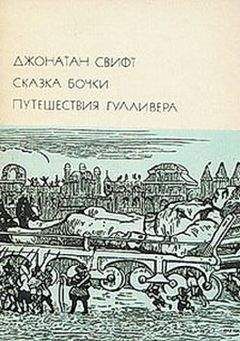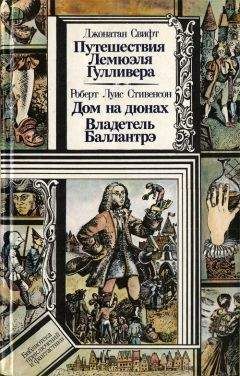gentleness ['Gent(q)lnIs], behaviour [bI'heIvjq], dance [dRns]
The Emperor and his people became less afraid of me because of my gentleness and good behaviour. I hoped I would be set free in a short time. Sometimes I would lie down and let five or six of these people dance on my hand, or let the boys and girls play "hide and seek" in my hair. I had made good progress in speaking and understanding their language.
One day they entertained me with a show (однажды они развлекали меня представлением; to show — показывать; show — показ; спектакль; шоу, представление). I enjoyed the tight-rope dancers most (больше всего мне понравились канатные плясуны; to enjoy — любить /что-то/, получать удовольствие /от чего-л./; tight — тугой, туго натянутый; rope — канат; верёвка; трос). They performed on a fine white thread (они выступали на тонкой белой нити) about two feet long and one foot from the ground (около двух футов в длину и /на высоте в/ один фут от земли). This skill is only practised by people (этим искусством занимаются только /те/ люди: «искусство практикуется только /теми/ людьми») who are candidates for important jobs at Court (которые являются = состоят кандидатами на важные должности при дворе; job — работа, труд; служба; место работы; должность). They are trained in this skill from their youth (их обучают этому искусству с юности; to train — тренировать, готовить, обучать).
entertain ["entq'teIn], practise ['prxktIs], youth [jHT]
One day they entertained me with a show. I enjoyed the tight-rope dancers most. They performed on a fine white thread about two feet long and one foot from the ground. This skill is only practised by people who are candidates for important jobs at Court. They are trained in this skill from their youth.
When a job becomes free (когда /какая-нибудь/ должность становится вакантной), five or six candidates entertain the Emperor and his Court with a tight-rope dance (пять или шесть кандидатов развлекают императора и двор танцами на канате). Whoever jumps the highest without falling gets the job (кто прыгнет выше всех, не упав, /тот/ получает /эту/ должность). Very often the chief Ministers themselves are commanded (весьма часто сами = даже первые министры получают приказ) to show their skill (показать свое мастерство) to let the Emperor know (дабы засвидетельствовать перед императором: «дать знать императору») they have not lost their ability (что они не утратили своих способностей). Flimnap, the Treasurer, is able to perform somersaults on a rope (Флимнап, казначей, способен совершать сальто на канате; treasure — сокровище; богатство; деньги; somersault — кувырканье, кульбит; прыжок кувырком, сальто) one inch higher than any other lord in the Empire (на один дюйм выше, чем любой другой сановник в империи). My friend, Reldresal, Principal Secretary for Private Affairs (мой друг Релдресaл, главный секретарь тайного совета: «по тайным делам»), is the next best after the Treasurer in my opinion (по моему мнению, занимает второе место после казначея; next — следующий; best — лучший, наилучший).
candidate ['kxndIdqt, -deIt], ability [qʹbIlItI], treasurer ['treZqrq], somersault ['sAmqsLlt]
When a job becomes free, five or six candidates entertain the Emperor and his Court with a tight-rope dance. Whoever jumps the highest without falling gets the job. Very often the chief Ministers themselves are commanded to show their skill to let the Emperor know they have not lost their ability. Flimnap, the Treasurer, is able to perform somersaults on a rope one inch higher than any other lord in the Empire. My friend, Reldresal, Principal Secretary for Private Affairs, is the next best after the Treasurer in my opinion.
These entertainments often cause serious accidents (эти развлечения часто сопровождаются серьезными несчастными случаями; cause — причина; to cause — послужить причиной; accident — случайность; несчастный случай). I, myself, have seen two or three candidates break a limb (я сам видел, как два или три кандидата ломали /себе/ руки и ноги; limb — конечность). The danger is greater when the Ministers are showing their dexterity (опасность /еще/ больше, когда /сами/ министры показывают свою ловкость). By trying to do their best (стараясь выступить как можно лучше: «сделать свое самое лучшее»), they strain too far and often fall (они проявляют чрезмерное усердие и часто падают; to strain — натягивать/ся/, растягивать/ся/; напрягаться; переутомляться; too — слишком; far — далеко; в большой степени). I was told that a year or two before my arrival (мне рассказали, что за год или за два до моего прибытия; to arrive — прибывать, приезжать), Flimnap had almost broken his neck (Флимнап чуть не сломал себе шею; almost — почти; едва не). One of the King's cushions (одна из королевских подушек), which fortunately lay on the ground (по счастливой случайности лежавшая на земле/полу; fortunate — счастливый, удачливый; удачный; благоприятный; fortune — счастье; фортуна), had broken his fall (смягчила его падение = удар от его падения; to break — ломать; разрушать; ослаблять, уменьшать /силу удара, скорость/).
serious ['sIqrIqs], accident ['xksIdqnt], dexterity [deks'terItI], cushion ['kVS(q)n], fortunately ['fLC(q)nqtlI]
These entertainments often cause serious accidents. I, myself, have seen two or three candidates break a limb. The danger is greater when the Ministers are showing their dexterity. By trying to do their best, they strain too far and often fall. I was told that a year or two before my arrival, Flimnap had almost broken his neck. One of the King's cushions, which fortunately lay on the ground, had broken his fall.
There is another amusement (есть еще одно развлечение; to amuse — развлекать, занимать внимание; позабавить, развеселить) which is only shown to the Emperor, the Empress and the Prime Minister on special occasions (которое устраивается в особых случаях в присутствии только императора, императрицы и премьер-министра: «показывается/демонстрируется только императору…»; prime — первичный, первоначальный; важнейший, главный, основной). The Emperor rewards the best performers with silk threads (император награждает лучших из выступающих шелковыми нитями; performer — исполнитель; актер; артист; тот, кто исполняет, осуществляет что-либо): a blue, a red and a green (синей, красной и зеленой). In this performance (во время этого выступления/представления), the Emperor holds a stick in his hands (император держит в руках палку). One by one, the candidates jump over the stick (один за другим кандидаты перепрыгивают через палку) or creep under it backwards and forwards (или ползают под ней взад и вперед). Whoever performs with the greatest agility (кто проделывает /это/ с наибольшим проворством) is rewarded with the blue silk (/тот/ награждается синей нитью; silk — шелк; шелковая нить). The red is given to the next (красная дается следующему = второму /по ловкости/) and the green to the third (а зеленая — третьему). They wear this silk wrapped twice around their middle (они носят эту нить, обмотанной = обматывая ее дважды вокруг талии; middle — середина, центр; талия). Only the most important persons of the Court wear one of these belts (только самые важные особы при дворе носят такие пояса: «один из таких поясов»).
amusement [q'mjHzmqnt], agility [q'GIlItI], reward [rI'wLd]
There is another amusement which is only shown to the Emperor, the Empress and the Prime Minister on special occasions. The Emperor rewards the best performers with silk threads: a blue, a red and a green. In this performance, the Emperor holds a stick in his hands. One by one, the candidates jump over the stick or creep under it backwards and forwards. Whoever performs with the greatest agility is rewarded with the blue silk. The red is given to the next and the green to the third. They wear this silk wrapped twice around their middle. Only the most important persons of the Court wear one of these belts.
After a while (через некоторое время) the horses of the cavalry were no longer frightened of me (лошади кавалерии = кавалерийские лошади перестали меня пугаться: no longer —уже не, больше не; to frighten — пугать). Riders could jump their horses (всадники могли заставить лошадей перескакивать; to ride — ехать верхом; to jump — прыгать, скакать; заставить прыгать /лошадь/) over my hand on the ground (через мою положенную на землю руку: «руку на земле»). One even leaped over my foot, shoe and all (один даже перепрыгнул через мою ногу, обутую в башмак: «вместе с башмаком»; shoe — туфля; полуботинок; башмак; and all — и все остальное; включая, вместе с /чем-л./).
I amused the Emperor one day in an unusual way (однажды я позабавил императора /весьма/ необыкновенным образом; usual — обыкновенный, обычный; way — путь; дорога; способ; манера). I asked for several sticks two feet high (я попросил /доставить мне/ несколько палок длиною в два фута). I fixed nine of these firmly in the ground (девять из них я надежно закрепил в земле; firm — крепкий, прочный, твердый; устойчивый) in a large square (в виде большого квадрата). I then tied my handkerchief to the nine sticks (потом я привязал к /этим/ девяти палкам свой носовой платок). I pulled it on all sides (я натянул его со всех сторон) until it was as tight as a drum (туго, как барабан: «до такой степени, что он был тугой как барабан»; until — /предл./ до; /союз/ до тех пор пока /не/; до того что; так что).
shoe [SH], unusual [An'jHZVql,-Z(q)l], square [skwFq]
After a while the horses of the cavalry were no longer frightened of me. Riders could jump their horses over my hand on the ground. One even leaped over my foot, shoe and all.
I amused the Emperor one day in an unusual way. I asked for several sticks two feet high. I fixed nine of these firmly in the ground in a large square. I then tied my handkerchief to the nine sticks. I pulled it on all sides until it was as tight as a drum.
Then I asked the Emperor (затем я попросил императора) to let twenty-four of his best horses and riders come (велеть прибыть двадцати четырем его лучшим наездникам с лошадьми; to let — позволять, разрешать /кому-л. что-л./; выступать инициатором совершения какого-л. действия, давать возможность /совершиться чему-л./) and exercise (и провести военные учения; to exercise — упражняться; тренироваться; /воен./ проводить учение) on top of my handkerchief (на моем носовом платке; top — верхушка, вершина; верхняя часть, верхняя поверхность). His Majesty agreed and I took them up one by one (его величество согласился /на это/ и я поднял их по одному наверх; one by one — один за другим; по одному, поодиночке). They divided into two sides (они разделились на два отряда; side — сторона; команда /как одна из сторон состязания/) and performed make-believe battles (начали изображать баталии «проводили притворные/ненастоящие сражения»; to make believe — делать вид, притворяться; симулировать /какую-л. деятельность/; воображать себя кем-л. /особенно о детях в играх/). The Emperor was so delighted (император пришел в такой восторг: «был так/настолько восхищен») that he ordered the entertainment to be repeated on several other days (что приказывал повторять /это/ развлечение еще несколько раз: «в некоторые другие дни»; to entertain — занимать, развлекать).



